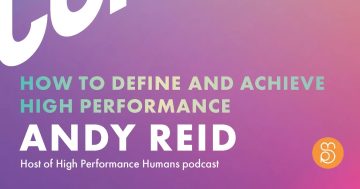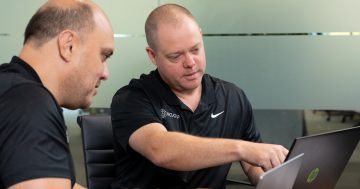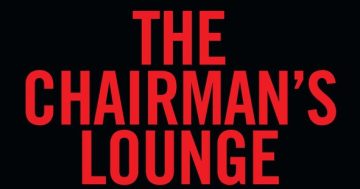Steve Mendl* says few people properly prepare for the change that comes when their job is unexpectedly made redundant or it’s time to retire from full-time work.

Photo: Austin Neill
One day, a man in his late fifties entered my office.
He was shaking.
By the look on his face, I could tell how scared he was.
As we spoke, it became clear that he was in shock.
After 30-plus years working for the same organisation, he’d received the news that his role had been made redundant.
His original vision of being with his Agency for his whole working life was gone.
As we got to know each other, he shared that his biggest fear was that no one would want him at his age.
Although he was financially secure, he couldn’t imagine a day without work.
Although Jeff’s transition was a forced one, and the decision made was outside his control, this is the same thing I see with clients who are about to transition out of full-time employment simply because the time has come.
They just can’t imagine it.
They aren’t prepared for it — even though they know it’s coming.
This article is about not just being prepared for change, but welcoming it!
Whether your job has been unexpectedly made redundant or you choose to retire from full-time work, most people don’t prepare for the change.
Consequently, when I ask my clients what they might want to do next (often with the question, “If time and money wasn’t an issue, what would you be doing?”), their answer is usually, “I don’t know”.
So many professional men and women are so involved in doing their job and looking after their team and their family that they do not prepare in any way, except financially, for what might be in store around the corner.
(Especially with an extra 40 to 60 hours a week on their hands.)
When it comes to career transitions — and especially the greatest career transition of all, when you leave the workforce all together — preparation is a key factor in making the journey into your next life stage as smooth and stress-free as possible.
How can you do it?
The solution comes in two parts.
The first part is obvious:
- Plan for the change early
There is evidence to suggest that change within workplaces — both private companies and the Public Service — is happening at a quicker rate than ever before.
This is due to several factors.
First, advancing technology is shaping and reshaping industries at an ever-increasing rate.
In many Departments, CEOs and other senior managers are not staying as long as they did in previous generations.
Each time there is a change at the top there is inevitably “restructuring”, “future-proofing” or “workforce transformation” that results in disruption to the status quo.
Machinery-of -Government mergers and modifications are happening many times quicker than they used to.
The result is often the need to deal with duplication of roles, cost efficiencies and new directions.
With all of these changes taking place, many people find themselves losing their old roles or their roles are being changed significantly.
In the public sector, Agencies are looking to becoming lighter and more agile in an increasingly technological environment, which means that, in today’s climate, change is the only constant.
Rather than assuming that the status quo will remain the status quo, it is safer to assume that change is inevitable, and plan early as a result.
- Shifting perspective
The second part of the solution is around changing your perspective to one of expecting change.
Generation Y and Millennials are extremely good at adapting to change.
This is because it has been a constant part of their lives, both in terms of technology and in terms of moving freely within the workforce.
Adapting to the next stage of life, retirement, is one of the biggest changes we’ll experience in life and, unlike Gen Y and Millennials, we’re less prepared for change.
Planning early and shifting your perspective to expect constant change rather than things remaining constant are key to combating the natural fear of change that comes with not knowing — or being able to imagine — what the future might hold.
In short, we need to welcome change.
If there is one thing certain in life, things change.
Being open to this and accepting it as part of life when it arrives means it becomes easier to deal with.
* Steve Mendl is the founder of Next-Aging and Beyond the Money Programs and the author of Beyond the Money: A Practical Guide for Successful Men Leaving Full-Time Work. His website is www.stevemendl.com.au.











